
A couple of weeks ago, I had the opportunity to speak with composer Parisa Sabet, the winner of the Sharing Notes Ear Taxi Composition Competition. Read on to learn more about Parisa, what drew her to the competition and the importance of the organization, her inspiration and influences, and more — and to learn even more about Sharing Notes, click on the link at the end of this interview, which will direct you to my January 2014 interview with the Founder and Director of Sharing Notes, Allegra Montanari.
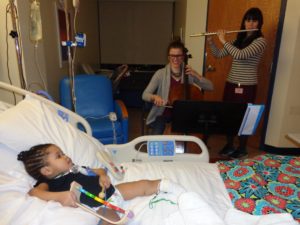
Andrew DeCanniere (AD): For those who may be unfamiliar with you or your work, I was thinking you could perhaps begin at the beginning and share a little bit about yourself and how you got your start in your field?
Parisa Sabet (PS): Sure. I’m originally from Iran and I moved to North America in 2006. I did my bachelor of music degree in composition at the Chicago College of Performing Arts of Roosevelt University and my master’s degree in composition at the University of Toronto. Currently, I am pursuing my DMA in composition at the University of Toronto under the supervision of Christos Hatzis.
When I moved, I went from performing to composing. The creativity in composition was much more interesting to me, so I decided to go in that direction. I had never composed before. It just started here. My style is very much inspired by Persian folk tunes. I get [a lot of] my inspiration from Persian or traditional Iranian music, even though my instrument was piano.
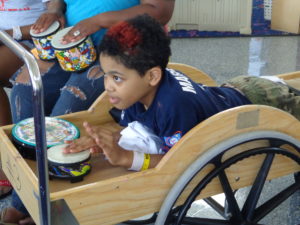
AD: Was there anything specific that drew you to music and composing in the first place?
PS: When you emigrate, I think you miss the culture and what you had there. You’re trying to find something to replace it. I think that was the thing that got me to go to composition. I remember the first piece that I did, which I loved very much, was inspired by a Persian tune that is always performed during the New Year. I thought this is the thing that I want to do.
It was the New Year in Iran, and where we lived in Chicago there weren’t a lot of Iranians. I was missing that atmosphere. So, by creating that music, I kind of replaced what I was missing. It makes you feel as though you are living in that atmosphere, but through your music. So, that’s how I kind of thought that’s the direction I want to take.
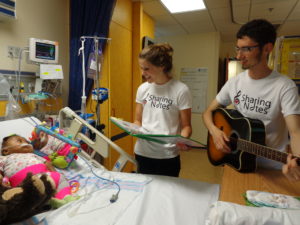
AD: And how did you come to be involved in the Sharing Notes / Ear Taxi competition?
PS: I actually heard about it because it was open to all current students and alumni of Roosevelt University. I received this e-mail that said if you want to write a piece, you could send them your proposal, after which they’d look at it and choose one of them. I didn’t know of Sharing Notes until that call for a proposal came about. It was a very interesting competition for me, personally. I wanted to be involved, because a few months before that, my son was born. He was born eight weeks early, and because he was born prematurely, he had to stay in the NICU [Neonatal Intensive Care Unit].
They told us that the way we could get him out of the NICU was to just be there, hold him, sing to him — just hold him all day long and read to him. That’s what my husband and I did. We went to the hospital everyday. We were there from early in the morning until late at night. We brought all of these things for him. One of the books that we were reading was How Do I Love You? Whenever I entered the NICU, I thought the place needed music, because it’s a very stressful moment in your life when your child is in there. When we came out, and this competition came about, I thought that it’s a really great thing and I wanted to be involved. I thought I will write a composition based on the book, which I liked very much. So, that was my proposal — to write a piece of music based on the children’s book How Do I Love You? It talks about how children are loved and the images are just so vivid.
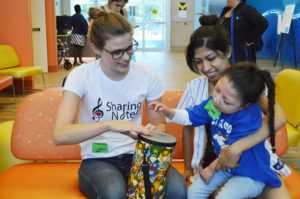
AD: Yeah. It really is such a wonderful organization. So many of the patients don’t get out at all, so, I’d think that music really offers a wonderful — and much-needed — break.
PS: Yeah. I’m so excited abut it and so happy I have this chance to write for them. It’s very challenging to write something very simple for children, so that they can enjoy it and also learn it quickly, if they want to get involved. I worked with Allegra. I sent a draft to her and then she told me how I could revise it in order to simplify it as much as possible, so any kid at any moment — whether they’re in a group or they’re just at the bed of one child, singing for them — could enjoy it and learn it quickly. It was a bit challenging, but I hope it’s something that kids are going to enjoy.
I think Sharing Notes is very unique. I don’t know if anybody is doing anything like it, but I haven’t heard anything of the sort in Toronto. It’s this way to share your music that seemingly no one else has thought about, with people who really need it at that moment, people who really deserve to listen to a little bit of music and just relax.
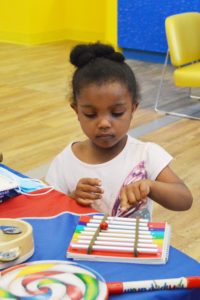
AD: Absolutely. As I said to Allegra, I feel like music just has this way of taking you out of the stressful circumstances. At least for the moment. It just has this way of helping you de-stress.
PS: Right. Because what you hear in the NICU are the monitors, all of the beeping. It’s so stressful when you hear it. When we were in the NICU, I think there were something like 22 units and seemingly every second one of them beeps, and it just puts everybody under stress. Sometimes, it’s just a wire that has moved and nothing important, but when it goes off parents worry about why the monitor is beeping and what’s wrong.
AD: I can imagine. It must be exhausting to be perpetually in this sort of state of heightened alert, day and night. Last, but certainly not least, who are your influences or who are your favorite artists or composers? Is there anybody in particular?
PS: You know, that’s a very interesting question. For me, it really changes from time to time and from piece to piece. I can’t really narrow it down to one or two or even ten composers. There are just so many pieces that inspire me.
To learn more about Sharing Notes, click here to be directed to my January 2014 interview with the organization’s Founder and Director, Allegra Montanari, or log onto their website.
To learn more about the Ear Taxi Festival, visit their website. You can also find out more about the Sharing Notes Ear Taxi Composition Competition by clicking here.
You can also learn more about composer Parisa Sabet, including her compositions, upcoming performances and events and much more by logging onto her website.

Be the first to comment